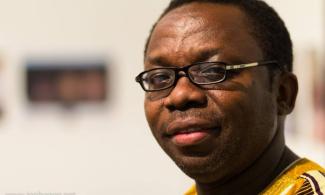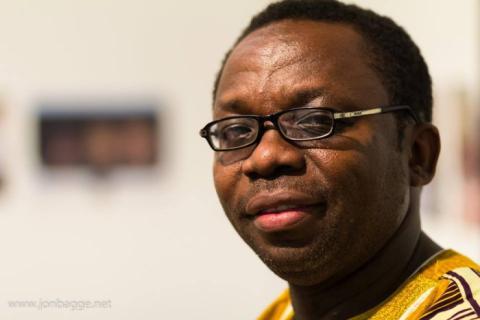
Muslim societies are long overdue for a reformation that guarantees equal rights for all persons including the rights to life and freedom of expression for all Muslims and non-Muslims, Muslims and ex-Muslims, Muslims, and atheists.
The Black Lives Matter has helped draw the attention of the world to police brutality and racial injustice against African Americans. They have used the canon of life to highlight the place and predicament of blacks in American society. As seen in the protests that followed the brutal murder of George Floyd by police officers in Minneapolis, the movement has underscored institutional and structural inequities that underly the mistreatment of blacks in western countries. However, a category of unmattered black lives has so far been ignored- the lives of persons, of black persons-of African persons who do not believe in God (Allah). As a matter of faith, persons who openly and publicly criticize islamic religion or belief in Islamic God have been accorded little or no value. To be specific, the lives of atheists in Islamic Nigeria, in Islamic Africa and the Islamic world have been deemed expendable by those who claim to be on Allah’s side.
Shortly after the gruesome killing of George Floyd, the life of another black person, Mubarak Bala, has been on the line, not due to racism or white police brutality, but due to religion. Bala’s life is in peril, not in America or in Europe but in Africa, to be specific in Northern Nigeria. Bala’s life has been in danger not for being black in a dominantly white society, but for being an atheist in a predominantly Muslim section of the country. Bala’s life has been at risk due to institutionalized oppression and persecution of persons who are open about their atheism in Muslim communities. Bala’s case has highlighted the inability of atheists and persons who hold views that are critical of Allah or the prophet of Islam to ‘breathe’ in Muslim majority societies.
You may ask: what was Mr. Bala’s crime? He made comments on Facebook that implied that the prophet of Islam was a terrorist and a pedophile. That was all. Nothing more. And for that reason, some Muslims want him prosecuted and jailed. Others have threatened to kill him. They said he blasphemed, that he insulted the prophet of Islam. And for that reason, his life no longer mattered to them. His life worth nothing to them. Bala must die. Yes, some Muslims are saying that Bala must be killed. Bala has been arrested and held incommunicado for almost two months. Meanwhile, in the same region, violent jihadists are on the rampage, killing, raping, maiming and kidnapping with impunity daily.

The death sentence which some Muslims have passed on Bala is not unusual. This kind of mistreatment is not new. It is not new to Kano state. It is not new to Nigeria. The reactions of some Muslims are not alien to Islam in Nigeria and the world. The persecution of Bala is not new to the religious enterprise. Religion has been at war with the other; theism with atheism since human beings created the various gods. Religions especially Islam and Christianity have a history of using violence, intimidation and threats of violence against atheists, nonbelievers, and disbelievers. While Islamic religion is critical of other religions, it expressly prohibits the criticism of its claims and teachings. Inspired by the verses in the Qur’an and the Hadith, those who believe in the Islamic God(Allah) have waged a physical and structural battle against those who do not believe or those who espouse views and expressions that object to or challenge Islamic theistic viewpoints and prophetic ideas. In Muslim dominated societies, entrenched hostility towards criticism has been more pronounced and has created a situation where the lives of atheists and apostates do not matter. For instance in Nigeria’s sharia implementing states, Islam is the state religion. And Islamic theism is a state policy. Atheism is outlawed. Being an atheist is socially a dishonor to Muslim families and the Ummah. Killing or eliminating an atheist a way of restoring the family and community honor. It is a form of religious duty, for which Allah would reward in the hereafter. Apostasy is a crime and the punishment for apostasy is death. Thus those who are born into Muslim faith must remain Muslims or they leave Islam and risk being executed. They renounce Islam and lose their human worth; their human life. They lose what makes them matter to Muslims. Even as an apostate or an atheist, one is not allowed to express views that are critical of Islam because the person risks being accused of blasphemy as in the case of Mubarak Bala. And to blaspheme against Islam, Allah and the prophet, not other religions, other Gods and prophets is an offense that attracts the death penalty. Thus in Muslim dominated communities, there is no worthwhile space for an atheist. There is no place to live a dignified life as an infidel.
Simply put, in Muslim majority communities, the lives of atheists do not matter. It is only the lives of those who profess Islam and belief in Allah and Muhammad his messenger that count. It is only the lives of those who express views and beliefs that are compatible with Islam that have value. It is only the lives of Muslims that matter. The lives of non-Muslims and ex-Muslims do not count and do not matter.
But this unfortunate situation must change.
As in the case of the Black Lives Matter, the little or no regard for the lives of atheists is linked to unjust structures and atheophobic facilities that exist and operate in Muslim communities. The Islamic establishment has allowed these iniquitous structures to fester and proliferate over the years. These institutions need to be reformed or dismantled. Quranic indoctrination and Madrassa school programs should be abolished or overhauled including Muslim clericalism because these are structures that orient Muslims at very early stages in life to accord no value to the lives of atheists and apostates. Islamic narratives and Quranic texts that vilify atheists and designate atheistic and Islam-critical views as contemptible should be critically examined. Passages in the Quran that sanction death for unbelievers or incite violence against atheists and critics of Islam need to be reviewed, revised or expunged. There is an urgent need to end the killing, persecution, and oppression of real or imagined atheists in Muslim communities.
People who criticize Islam or the life and teaching of the prophet should be treated with dignity and respect. Criticism of Islam should not be a death sentence. Views that fault the life and legacy of the prophet should be met with civil, not violent reactions. Muslims should learn to tolerate dissenting opinions. They should learn to value the lives of those who renounce Islam, or those who question Islamic doctrines and beliefs. Muslims should realize that if they are to debate and dialogue with atheists; if they are to convince or eventually convert atheists, atheists must first be alive.
Thus there is no reason for the arrest and incarceration of Mubarak Bala for expressing an opinion about the prophet of Islam. There is no justification to kill or to threaten to murder him for making a Facebook post. Muslims who are unhappy with the posts should make counter posts on Facebook or Twitter. They should not issue death threats or ask that he be arrested and prosecuted for insulting religion. This intolerant, hateful, anti-life, and anti-atheist strand of Islam needs to discarded and abandoned. As a matter of urgency, Islam’s bloodletting machinery needs to be dismantled and disabled.
Muslim societies are long overdue for a reformation that guarantees equal rights for all persons including the rights to life and freedom of expression for all Muslims and non-Muslims, Muslims and ex-Muslims, Muslims, and atheists. The Ummah needs to embrace the idea that the lives of Muslims matter. Lives need not be wasted in the quest to redress any real or imagined insult on Islam or the prophet. More importantly those who profess Islamic faith need to realize that the lives of atheists and ex-Muslims matter.